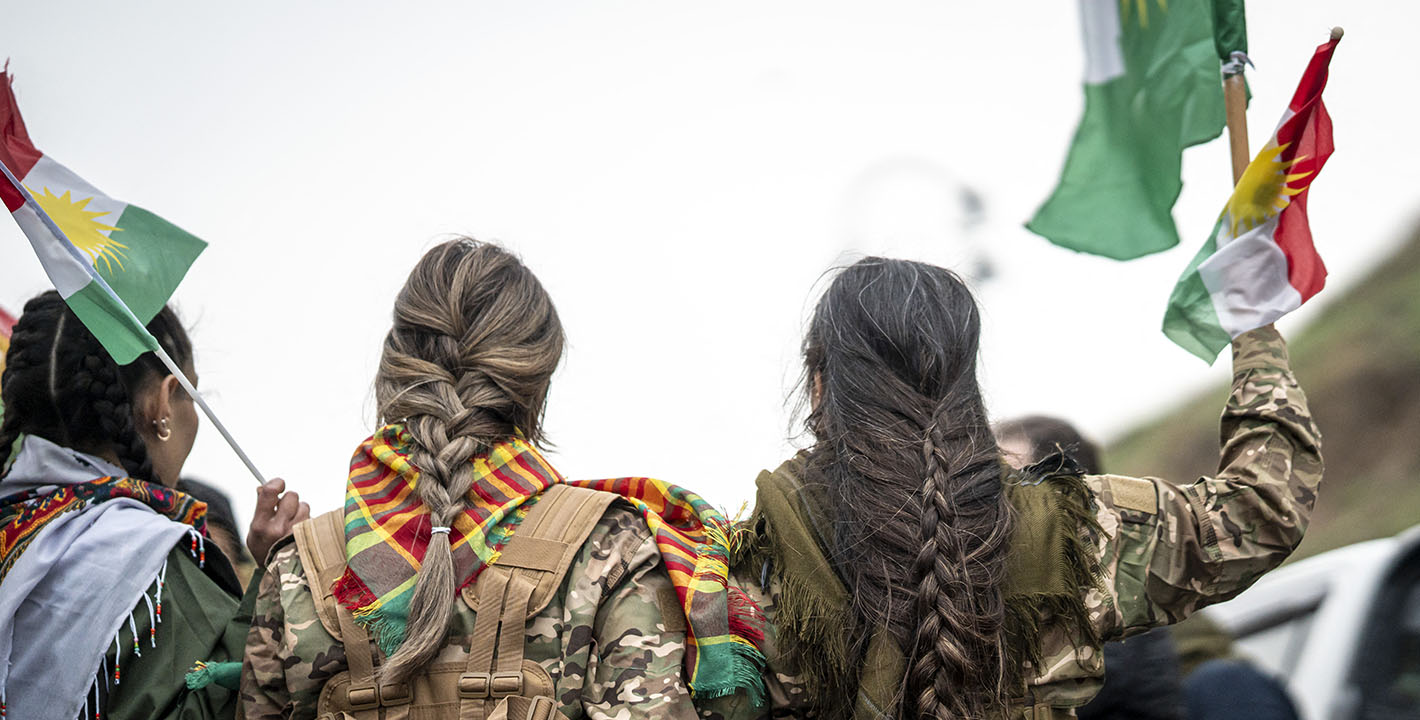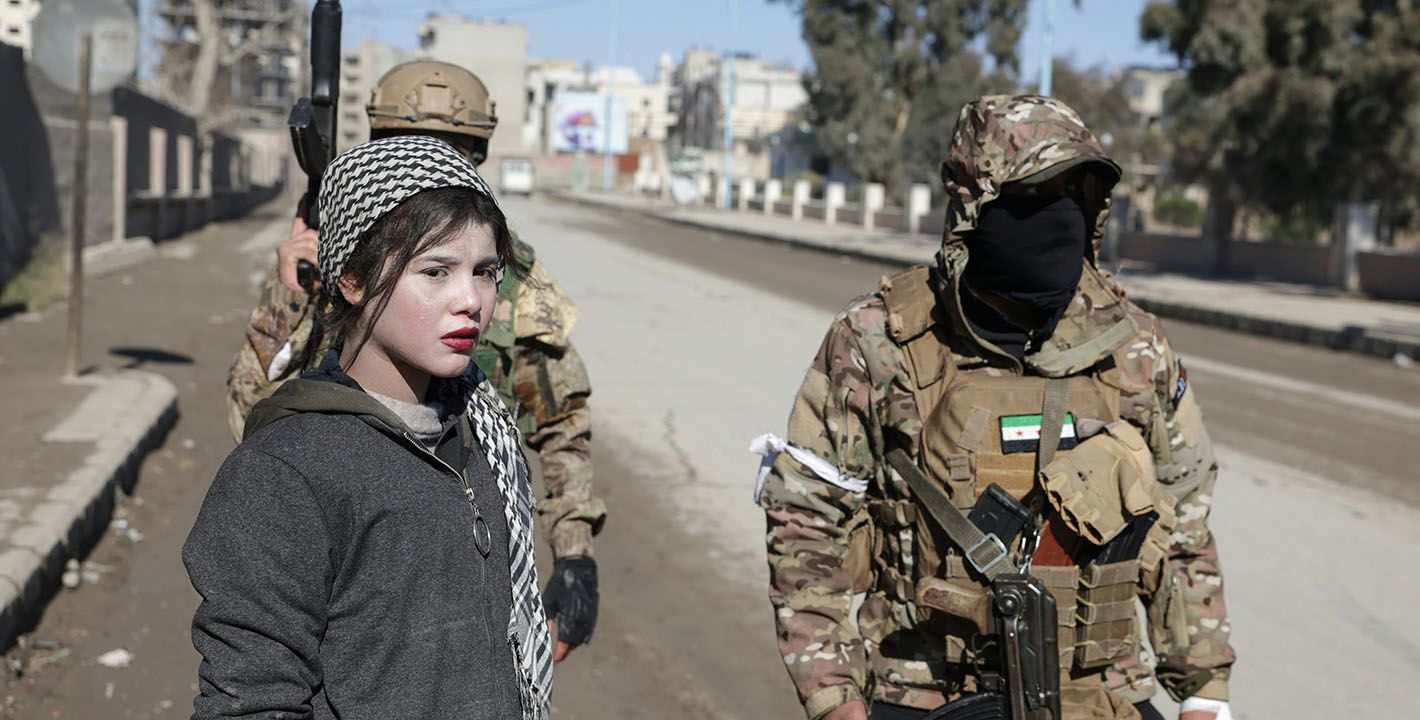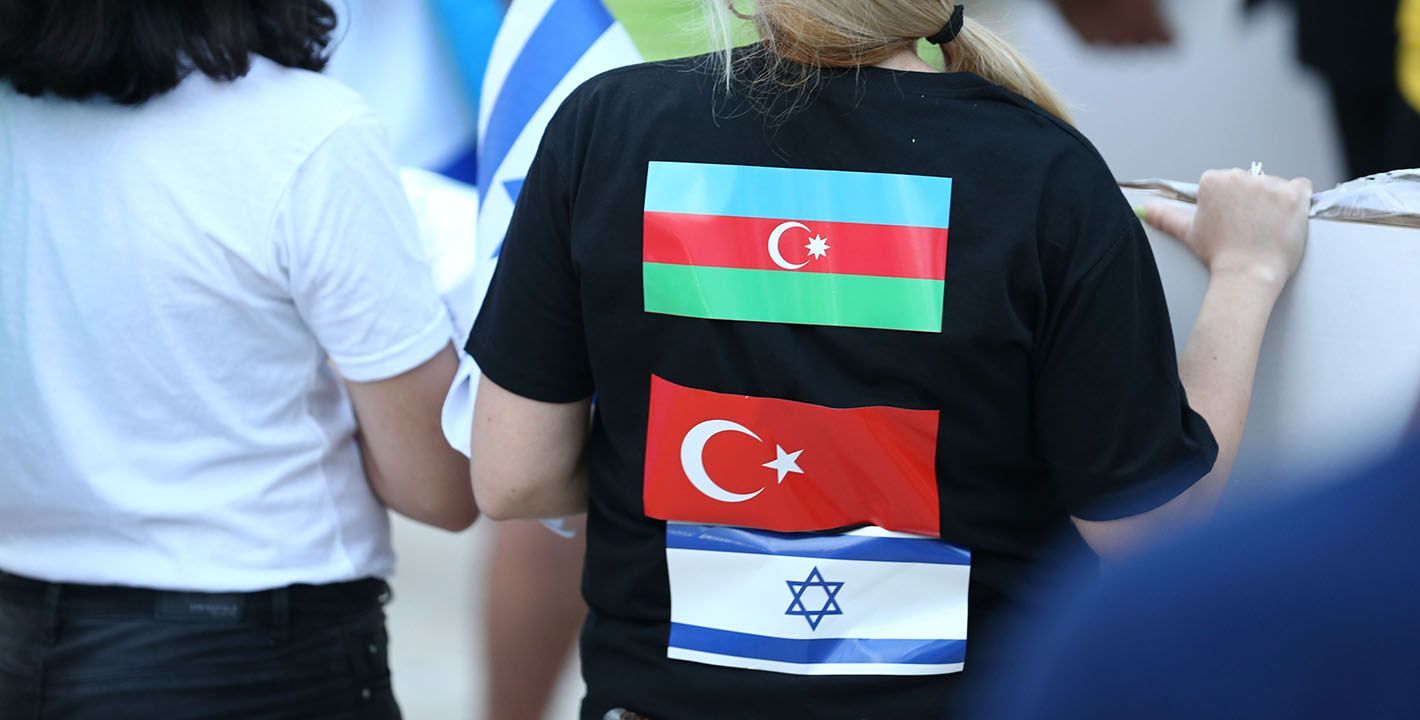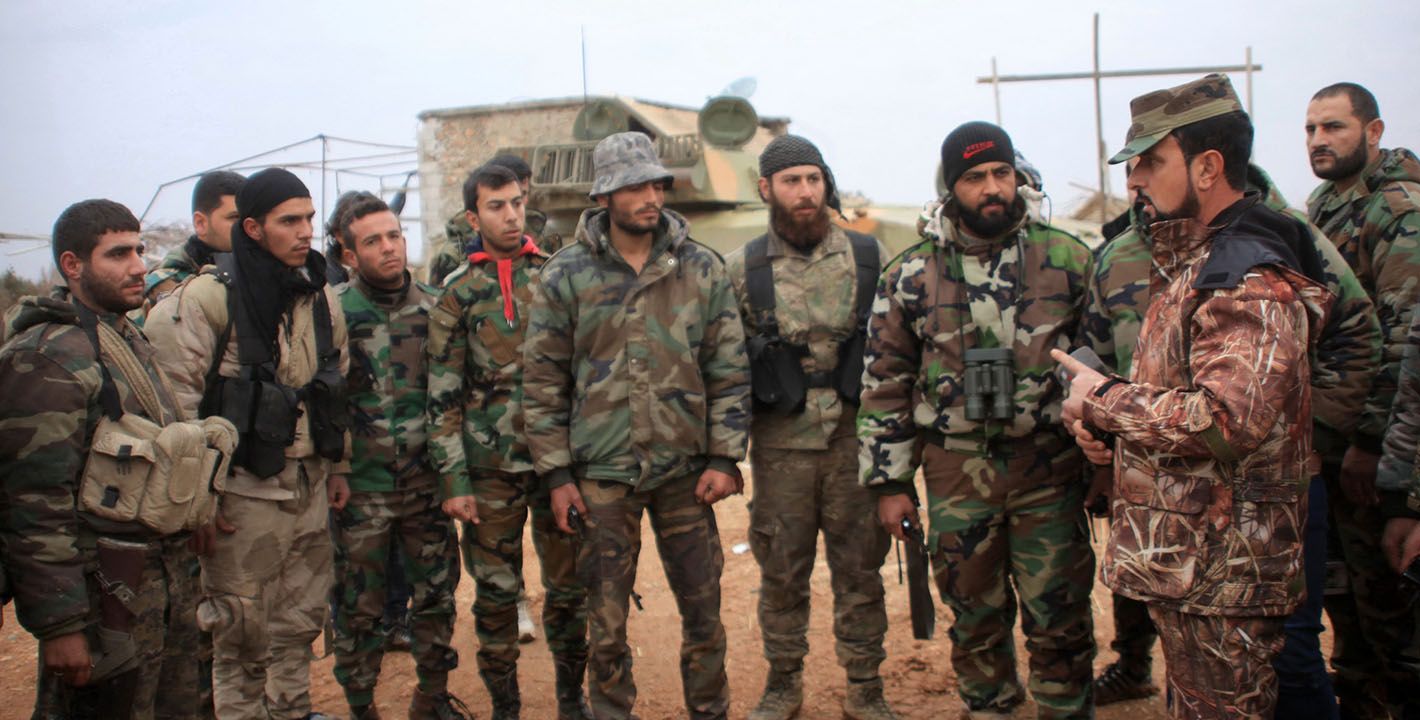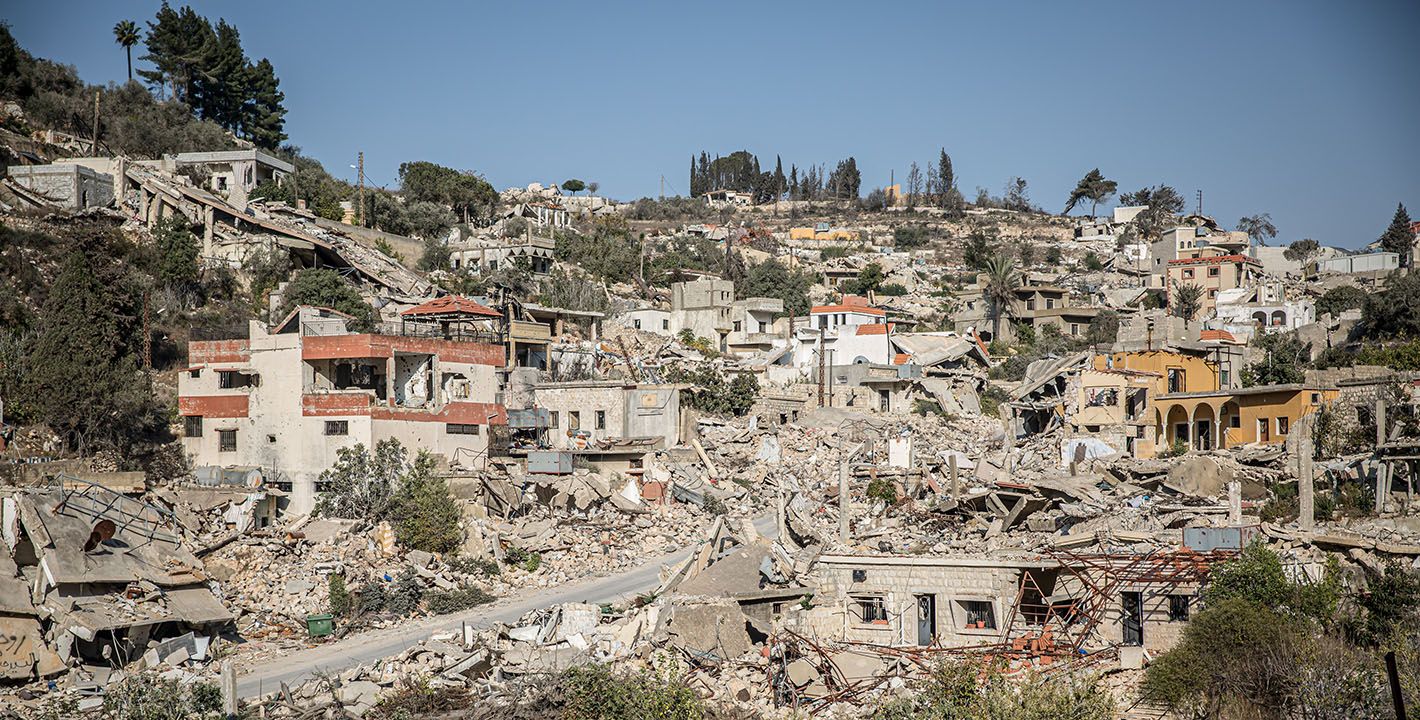Aron Lund
{
"authors": [
"Aron Lund"
],
"type": "commentary",
"blog": "Diwan",
"centerAffiliationAll": "",
"centers": [
"Carnegie Endowment for International Peace"
],
"collections": [],
"englishNewsletterAll": "",
"nonEnglishNewsletterAll": "",
"primaryCenter": "Carnegie Endowment for International Peace",
"programAffiliation": "",
"programs": [],
"projects": [],
"regions": [
"Russia",
"Syria"
],
"topics": []
}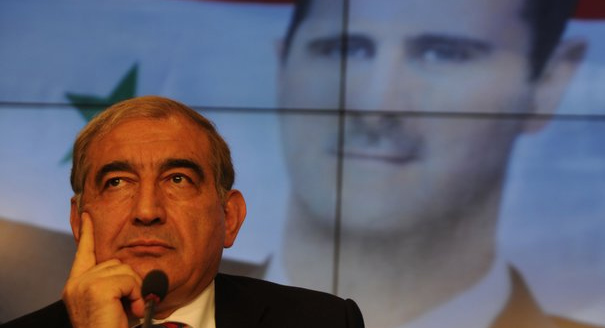
Source: Getty
Mid-interview, Qadri Jamil was informed that he had been fired. Syria’s deputy prime minister for economic affairs was talking to the state-owned Russia Today channel, when he was suddenly asked about the reason for his resignation. Jamil, to his credit, kept a perfect poker face as he tried to figure out what was going on.
Jamil: "Honestly, I hadn’t heard a word about it before I went into the studio. When did you hear this?"
Host: "Just now!"
The interview ended amicably soon thereafter, but the news, of course, turned out to be true. A statement from the Syrian government explained that Jamil had been fired because of “absence from his workplace without previous permission, and neglect of the duties entrusted to him as economic deputy.” More intriguingly, the statement also added that Jamil had “carried out activities and meetings outside abroad without coordinating with the government.” This seems to have been a reference to a meeting in Moscow between Jamil and Robert Ford, the American ambassador to Syria.
Syria’s Minister of Information Omran al-Zoubi was quick to try to smooth over the differences, saying Jamil was well within his rights to pursue the politics he wanted, but he would have to do so outside of the government. Jamil himself seemed slightly confused, in follow-up interviews with the Russian media, but said he ”accepted” the government’s motivations for firing him, and his political faction issued a statement saying this "does not change its policies.”
Who is Qadri Jamil?
Qadri Jamil, born in Damascus in 1952 to a family of Kurdish origins, first entered the Syrian government in June 2012. This was after what had been billed as Syria’s first true multi-party elections, following a constitutional amendment. However, the amendments were so hollow and the regime’s behavior so blatantly authoritarian, that none of the real Syrian opposition parties wanted to take part. Even the most moderate groups left inside Syria opted to boycott the elections, including the National Coordination Commission of Hassan Abdelazim and the Building the Syrian State movement of Louai Hussein. But Jamil did run for a seat, ignoring the decision of the rest of the opposition—because he was never truly part of it.
While he is routinely billed as an “opposition leader” in Syrian, Iranian, and Russian media, Qadri Jamil has always hovered on the outskirts of regime politics. He first created a political organization (called the National Committee for the Unity of Syrian Communists) in 2000, after splitting from the state-backed Syrian Communist Party, where he had married into the leading Bakdash family, but ran afoul of other contenders for party leadership.
His breakout faction of mostly Damascene communists was not formally legal, but it also was not in opposition. Jamil would voice mild criticisms of the regime, but nothing too personal. And while many other dissident leftist figures were arrested in the 2000s, Jamil was left untouched. Most dissidents considered him to be an ally of the regime, or even an agent of Assad’s intelligence services.
Just in time for the elections in 2012, Jamil decided to create a political organization, the Popular Will. He then brought it into a coalition with other pseudo-opposition figures (e.g. the current Minister of Reconciliation, Ali Heidar), who called for reform but supported the continued rule of Bashar al-Assad. Together they formed the Popular Front for Change and Liberation, which has since been portrayed by regime media as the true face of the “patriotic opposition.”
As a member of the cabinet, he is not considered to enjoy any real influence over the regime, despite his title. Rather, it is the regime that is eager to use him to project a reformist face and show that pliant non-Baathists will be well treated. He has accordingly been allowed considerable latitude when speaking to the media. Another reason for his promotion to a cabinet position may be Assad’s increased dependency on foreign support: many have described Jamil as “Putin’s man in Syria,” and noted his frequent trips to Moscow and appearances in Russian media.
Why Was Jamil Fired?
There are many potential explanations, all of them appealing to the conspiracy-minded.
One possibility, of course, is that it is all theatre. The focus of Jamil’s meeting with Ford (described as “long but useless”) was to get himself included in the opposition’s delegation to the ever more unlikely Geneva II peace congress. The US wants that delegation to be led and controlled by the National Coalition of Ahmad Jarba, its own favored bloc of exiles, but Russia and other pro-Assad states are pushing to dilute National Coalition influence by including as many other actors as possible. Chief among them, of course, are Jamil and his Popular Front allies. But even Bashar al-Assad must recognize that being deputy prime minister detracts from Qadri Jamil’s credibility as an opposition representative. So perhaps a change of title was in order—from “powerless minister” to ”dissident ex-minister.”
Then again, it is also possible that the government version is more or less true. It was just over a month ago that the Obama administration threatened to intervene militarily against Assad. In the Syrian government’s eyes, Ford represents a dangerous enemy state. The intelligence services are obviously nervous about the risk of cabinet-level defections since prime minister Riad Hejab fled Syria in summer 2012.
Perhaps Jamil had simply failed to inform all the powers that be of his intentions to meet with Ford in Moscow. Such a breach of cabinet discipline would hardly go unchallenged even in a wartime democracy, and in a super-centralized dictatorship like that of Assad’s Syria, the red lines around the president’s prerogatives are guarded even more zealously.
About the Author
Former Nonresident Fellow, Middle East Program
Aron Lund was a nonresident fellow in the Middle East Program and the author of several reports and books on the Syrian opposition movement.
- Going South in East GhoutaCommentary
- The Jihadi SpiralCommentary
Aron Lund
Recent Work
More Work from Diwan
- Kurdish Nationalism Rears its Head in SyriaCommentary
A recent offensive by Damascus and the Kurds’ abandonment by Arab allies have left a sense of betrayal.
Wladimir van Wilgenburg
- All Eyes on Southern SyriaCommentary
The government’s gains in the northwest will have an echo nationally, but will they alter Israeli calculations?
Armenak Tokmajyan
- Iran’s Woes Aren’t Only DomesticCommentary
The country’s leadership is increasingly uneasy about multiple challenges from the Levant to the South Caucasus.
Armenak Tokmajyan
- Is Lebanon Hosting Officers of the Former Assad Regime?Commentary
Recent leaks made public by Al-Jazeera suggest that this is the case, but the story may be more complicated.
Mohamad Fawaz
- Pax Israelica and Its DiscontentsCommentary
The U.S. is trying to force Lebanon and Syria to normalize with Israel, but neither country sees an advantage in this.
Michael Young

